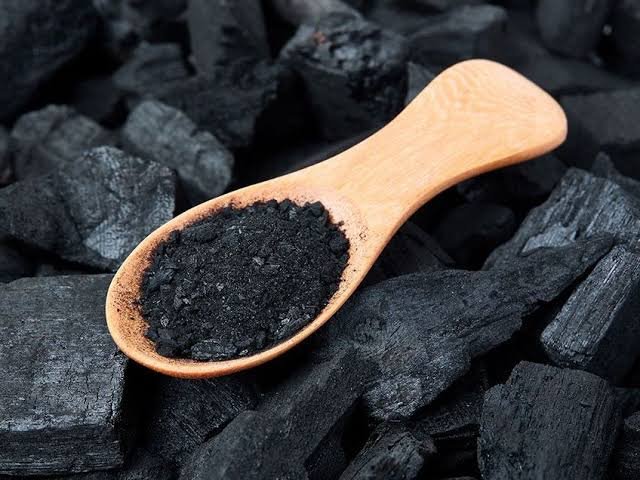A special kind of charcoal is called “activated charcoal” when it has undergone a high-temperature oxygen treatment to increase its porosity, decrease its volume, and increase its surface area.
Activated charcoal is incorporated into many goods, both edible and non-edible, such as ice cream and toothpaste. Traditional charcoal briquettes used for grilling and cooking are toxic. So, don’t use traditional charcoal for these purposes.
Here are the benefits of using activated charcoal:
1. Reduce the fish odour smell
Activated charcoal may help reduce fish odour syndrome symptoms in people with trimethylaminuria (TMAU), a genetic condition where trimethylamine (TMA) piles up urine, sweat and breath in the body and causes body odour.
The body usually converts TMA into an odourless compound before excreting it through urine, but those with TMAU do not have the enzyme that can convert it.
Studies show that activated charcoal’s porous surface may bind to small, odorous compounds like TMA, increasing their excretion so the smell isn’t retained in the body.
2. Emergency anti-poison treatment
Since the early 1800s, it has been utilized as an immediate anti-poison remedy. It can lessen the effects of a variety of drugs and can be used to treat prescription drugs and over-the-counter medication overdoses.
According to studies, an adult’s ability to absorb a medicine may be decreased by up to 74% by swallowing 50–100 grams of activated charcoal within five minutes after taking it. After an overdose or poisoning, taking activated charcoal during the first hour makes it works better.
3. Promotes kidney function
Activated charcoal may improve kidney function by lowering the volume of waste products that the kidneys must filter; this is especially advantageous for those with chronic kidney disease. While kidneys in good health are capable of filtering blood, this disorder limits their capacity to eliminate urea and other contaminants.
For those with chronic kidney disease, activated charcoal may help lower urea and other waste product levels in the blood as well as enhance kidney function.
4. Reduce cholesterol levels
A study found that taking 24 grams of activated charcoal per day for 4 weeks reduced total and LDL cholesterol by 25% each while raising HDL cholesterol by 8%. Activated charcoal has been found to reduce cholesterol levels by binding to cholesterol and cholesterol-containing bile acids in the gut and stops their absorption.
5. Reduces internal gas
Activated charcoal powder is also believed to disrupt intestinal gas. A 2012 study showed that taking 448 mg of activated charcoal three times a day for two days before and after intestinal ultrasound examinations improved the visibility of certain organs which would have been obscured by intestinal gas before the treatment. Additionally, 34% of participants who were given activated charcoal to reduce their gas also had improved symptoms.
6. Skincare
Toxins, germs, chemicals, and other microparticles are drawn to the surface of the skin by activated charcoal, making it easier to remove them. So many people use charcoal as facial masks and some even take charcoal baths to have smoother skin.
7. Whitens teeth
Many teeth-whitening products contain activated charcoal which claims to have antiviral, antibacterial, antifungal, and detoxifying properties.
Activated charcoal effectively attaches itself stains in the teeth and removes it but it may not be suitable for crowns or veneers. It should also not replace your regular oral care routine and should be done a few times a week.




